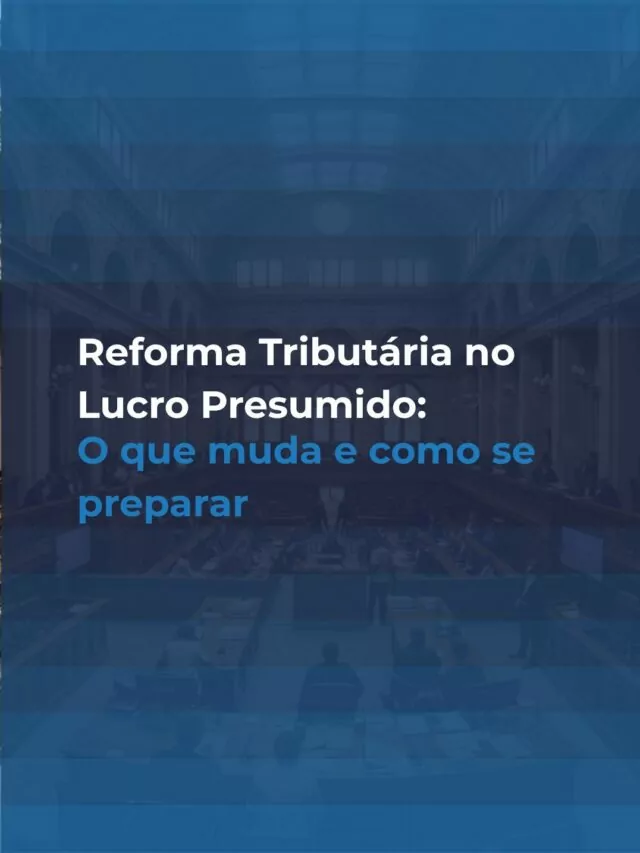In recent years it has become common to offer "miracle" solutions to pay off taxes using old government bonds or questionable credits. Consultants of dubious origin seek out entrepreneurs promising to eliminate tax debts through apparently valuable papersThis is supposedly equivalent to cash. As a result, government agencies have stepped up their warnings.
How do these tax frauds work?
In general, the coup begins with a well-crafted story presented by consultants or intermediaries. They create "cover stories" - narratives full of technical details and legal references - to persuading the taxpayer that a certain old bond or credit is legitimate and can reduce your taxes. These stories usually distort laws and historical factsThis gives the entrepreneur the impression that there is a secure legal basis when, in fact, there isn't, are totally wrong or fabricated interpretations.
Scammers often promise drastic reduction in the tax burden or full settlement of tax debts without payment in cash. For example, they claim to own maturing Treasury bonds, "certain" court judgments against the government or credits resulting from court rulings, and they offer these "credits" at a discount - In other words, the entrepreneur would pay them a fraction of the amount owed in taxes, and they would take care of offsetting the tax with that paper. The proposal appears to be financially advantageousThis may lead entrepreneurs in difficulty to consider it.
In order to sustain the farce, the fraudsters present apparently official documentsThese include notarized contracts, certificates, expert reports, supposed court rulings or credit assignment terms. They often display certified copies of deeds of assignment of credit rights between private individuals, stamped at a notary's office, to give them an air of credibility.
It's worth remembering: the notary only authenticates signatures, does not attest to the legal validity or veracity of the content of these documents. Even so, these consultancies assure the entrepreneur that everything is in order, some even claiming that "a Internal Revenue Service is slow or incompetent and won't contest it" - creating a false sense of security.
Meanwhile, on the tax authorities' side, these frauds end up being detected. Criminals often file compensation statements (DComp) at the Receita Federal, informing these supposed credits to write off tax debts (IRPJ, CSLL, PIS/COFINS, social security contributions, etc.). In some cases, they also send rectifying statements or improperly declare court decisions (which don't actually exist) in ancillary obligations, in order to fraudulently suspend the collection of taxes. Initially, the company that falls victim to the scam may even obtain a negative debt certificate or no longer appear as a debtor, due to the compensation provided. But this is only temporary: by passing through the sieve of the tax auditors, the "credits" are refused for lack of legal support and the offset is undone - leaving the tax debt outstanding again, plus fines and interest for the delay.
In a nutshell, fraud consists of deceiving the entrepreneur into believing that he has found an alternative way of paying less taxwhen in fact he's just failing to pay what he owes. The scammers keep the fees or amounts paid by the company, while the company assumes all the risks. Next, we'll look at examples of the titles and documents most commonly used in these frauds and why none of them are valid for paying off taxes.
Misused documents and titles - common examples
Foreign policies and foreign debt securities
Scammers also use Brazilian bonds issued abroad, especially in the early decades of the 20th century, such as the so-called "bonds" in pounds sterling or French francs. Often these old papers are still circulating in private collections and end up being used in scams. However, it is crucial to know that bonds issued in foreign currency and sold outside Brazil could only be redeemed abroadand in the currency of origin. They were governed by the laws of the country of issueThere is no provision for monetary correction or interest under Brazilian law. So even if someone physically owns an old bond issued in London or Paris, there is no way to redeem it in reais or use it for taxes in Brazil. If it hasn't been claimed at the right time (and many haven't), it's completely lost its value due to the statute of limitations. To sum up, no foreign policy or old foreign debt bond can be used to pay or offset taxes- any private deal involving these papers is a scam.
FCVS credits (Salary Variation Compensation Fund)
The FCVS is a government fund linked to old housing loans. There are scams where consultants offer "FCVS credits" negotiated with third parties to write off tax debts. In theory, financial institutions that granted housing loans covered by the FCVS are entitled to receive from the Federal Government the difference not paid by the borrowers, through a process called debt novation according to Law 10.150/2000. However, these credits are highly specific and controlled - only banks and agents of the SFH (Housing Finance System) can claim them from Caixa Econômica Federal, which manages the fund. A The Union only officially assumes these debts after rigorous analysis and issuance of CVS bonds in favor of legitimate creditors. Therefore, private individuals cannot simply "buy" FCVS credits and use them for taxes. The National Treasury makes it clear that does not recognize calculations of FCVS credit amounts made by private individuals (only Caixa, as administrator, can determine amounts) and does not process transfers of ownership of these credits to third parties. Even if someone presents a notarized assignment contract claiming to have acquired an FCVS credit, that doesn't guarantee any validity. All the legal and administrative procedures provided for by law must be complied with by the real creditor financial agents. In short: if you are offered an "FCVS credit" to pay taxes, reject it - it's a trap.
Agrarian Debt Securities (TDA) in paper form
TDAs are bonds issued by the Federal Government to compensate owners of land that has been expropriated for agrarian reform. Here the scam consists of presenting Old TDAs, issued on paper, with very high valuesclaiming that they could settle taxes. In fact, the legislation allows only which TDAs regularly issued and recorded electronically are used to pay up to 50% Rural Land Tax (ITR) owed by the owner of the security. And even this use requires a specific procedure: the taxpayer must buy TDAs through authorized brokers, register the securities in their name at B3 (custody exchange), obtain authorization from Incra/Treasury and then request the Federal Revenue Service to offset part of the ITR, presenting all the supporting documentation. Outside of this specific case (50% ITR)No other federal tax can be paid with a TDA. Furthermore, all TDAs issued in physical form up to 1992 have lapsed - from that year onwards, the Treasury began issuing them only in book-entry (electronic) form, replacing the old papers. The booklet even cites a specific case in which the Federal Court asked for the collection of a 1990 TDA worth hundreds of millions of reais; the judge denied the request, recognizing that the TDA had been issued in electronic form. prescription of title and dismissed the case. In other words, old TDAs in paper form are worthless e any offer to pay taxes with these documents is fraud.
Other "credits" and miscellaneous documents
The scammers are creative and try to rely on any type of claim that seems to have a connection with the government. We've seen it all: old court rulings (sometimes still in progress) against public bodies, debts owed by state-owned companies that are now defunct, financial agreements from the past, and so on. For example, the booklet warns against fake consultancies selling credits linked to Incra expropriation lawsuits. They claim to have liquid and certain rights to compensation for expropriated land, saying that these amounts can be compensated in any federal tax. But in many cases, these processes they haven't even become final yet (there is no final decision) or the credit cannot be transferred freely. There are reports of scammers offering claims against former state-owned companies such as Portobrás or even Royal Union Vouchers referring to the privatization of Vale do Rio Doce, claiming that the Union assumed debts and that this would entitle it to tax rebates - which has no basis in current tax legislation. In short, any obscure document, without a clear provision in the law, which promises to accept money in lieu of tax. should be viewed with the utmost suspicion.
Valid federal government bonds: what does the law say?
Faced with so many supposedly miraculous titles and credits, the question remains: are there public bonds that can pay taxes? The answer, in almost 100% of cases, is no. Brazilian legislation establishes exactly which federal public debt securities exist and how they workand creates very few exceptions for its use in offsetting taxes.
According to Law no. 10.179/2001 - which organizes the issuance of National Treasury bonds - currently there are only three types of federal domestic debt securities: a LFT (Financial Treasury Bill), a LTN (National Treasury Bill) and NTN (National Treasury Note). These bonds are used by the government to finance itself and are issued exclusively in book-entry (electronic) formregistered with SELIC (Central Bank system) or on the B3 (stock exchange). There are no current federal bonds issued on paperany physical "card" that someone presents as a National Treasury bond is a forgery or an old document that is no longer valid.
Article 6 of Law 10.179/2001 states that maturing federal bonds could be used to pay federal taxes. But in practice, this never happensbecause all securities are redeemed on their maturity date. In other words, there is no such thing as a Treasury bond that matures and remains "loose" in the market without being paid - the government pays the creditor at maturity and extinguishes that bond. So no investor is left with a maturing bond to use for compensation. Therefore, as the booklet states, there is no chance of paying federal taxes with LFT, LTN or NTNNeither electronic (as there are no outstanding overdue securities) nor paper (as they would be false or time-barred).
Tax legislation also does not recognize any "credits" of individuals against the Union to offset taxes, unless provided for by law or a final court decision. A the general rule is that taxes are paid in cash - only if there is an expressly authorized situation (e.g. a legitimate tax credit or a final and unappealable judgment The reason for this is that the taxpayer can pay the tax in another way. For this reason, operations based on creative interpretations or non-existent legal shortcuts invariably end up being refuted by the tax authorities.
In a nutshell, the only government bonds that are "useful" to the taxpayer are those in Treasury Direct - but only as a financial investment, not to pay tax directly. Those who buy Treasury bonds do so in order to invest their money, obtaining income according to interest rates, and then redeem it for cash when you need it. None of these modern securities can automatically deduct taxes. A only relevant exception is, as already mentioned, the Agrarian Debt Securities (TDA) to pay part of the ITR, and even then within the conditions well defined by law. Apart from that, any proposals for converting old bonds into tax credits or using documents as currency to pay taxes have no legal backing and constitute fraud.
To be clear: the National Treasury reinforces that old bonds issued in foreign currency cannot be converted into current federal bonds (LFT, LTN, NTN) - all the conversions of old debts provided for by law have already been carried out or revoked, and there are no longer any legal loopholes for "updating" papers from the past. Therefore, if someone offers you a bond or credit and says that "the government accepts it to pay tax", require a specific legal basis. Be wary if you quote obscure or repealed legislation. Remember that non-existent laws or adulterated articles have already been used in fraudulent material - for example, forgers invented a supposed "Law No. 20.279/2001" (which doesn't exist) and even distributed copies of the art. 6 of Law 10.179/2001 with altered text, trying to include foreign debt bonds where there were none. These fabrications can't withstand a careful check - and an honest professional will soon spot the hoax.
What are the consequences for the entrepreneur who falls for the scam?
In view of all this, it is crucial to emphasize: using false securities or doubtful credits to offset taxes constitutes tax fraud. Even if the entrepreneur acted in the belief of the consultancy, he will be legally responsible for the attempted fraud against the tax authorities. The consequences are three spheres - tax, criminal and civil - as detailed in the booklet:
-
Fiscal (tax) consequences: The IRS, upon identifying the fraud, reverses undue compensation and collects the taxes due. The company will have to pay the full original amount of the tax, plus a late payment penalty of up to 20% and SELIC interest from the due date. In addition, a aggravated ex-officio fine of up to 150% of the amount of tax evaded. Other effects include loss of negative debt certificate (preventing participation in tenders and access to credit), the registration of the debt as an active debt and in Cadin (Register of Defaulters), followed by immediate tax enforcement with attachment of assets. The company is also represented to the Public Prosecutor's Office for criminal investigation. Benefits or special tax regimes can be suspended or revoked as an administrative penalty. And if you go to court to argue your case, in the end you will have to pay court costs, attorney's fees and possibly sanctions for bad faith litigation. Important: partners or managers who participated in the fraud can be declared jointly and severally liable for the resulting tax debts. This means that the personal assets of those involved can be used to pay the company's debts, if malice (intent to defraud) is proven.
-
Criminal consequences (crimes): Tax fraud through the use of false securities can lead to a number of crimes. In the criminal sphere, all those who took part in the scheme - company partners, consultants, intermediaries and possibly conniving public officials - will be charged. can be arrested during the investigations (temporary or preventive arrests) and suffer search and seizure of documents, breach of bank secrecy, blocking of accounts and assets, etc. At the end of the investigation, the Federal Public Prosecutor's Office usually denounces those involved for false documents and use of false documents (arts. 297, 298 and 304 of the Penal Code)as well as crimes against the tax order (Law no. 8.137/90, arts. 1 and 2). The penalties can vary from 6 months to 6 years imprisonment, plus fineFor each crime. If convicted of multiple crimes, the penalties are added together and can lead to several years in prison. In other words, a businessman who embarks on a public securities fraud risks not only his money, but also his freedom.
-
Civil consequences (liability and civil penalties): In the civil sphere, those involved can be held liable for acts of administrative improbity (if a public servant is involved) or for other offenses against the Treasury. In such cases, sanctions may include loss of public office (for civil servants), suspension of political rights, prohibition from contracting with the public authorities or receiving tax incentives and payment of compensation for damage caused. In addition, the Public Prosecutor's Office or the AGU may seek judicial blocking assets of those responsible - both the company and the partners - and even the disregard of legal personalityIn other words, those who engage in fraud of this kind are subject to civil lawsuits that can affect their personal assets in order to compensate for losses. In other words, anyone involved in fraud of this kind is subject to civil actions that can financially ruin the company and its ownersIn addition to the original tax debt, there are also civil fines and a duty to make reparations.
As you can see, cheap is expensivethe prospect of saving taxes using fake credits turns into much bigger liabilities, with 150% fines, criminal proceedings and risk to personal assets. Many entrepreneurs who have fallen for these scams have found themselves in a worse situation than before - with increased tax debts and the company's name tarnished by fraud investigations. That's why it's essential to know the prevention measures and never venture into easy solutions without legal backing.
Practical tips to avoid these pitfalls
Fortunately, there are several preventive actions that the entrepreneur can take to avoiding tax fraud. The booklet lists effective care, which we summarize below in simple language. Always be on the lookout for proposals that are out of the ordinary and use the tips below as a safety checklist:
-
Be wary of exaggerated promises: If someone promises "pay off all your taxes with a 70% discount" or "a secret solution the government doesn't want you to know about"turn on the warning signal. Scams often offer unrealistic financial gains or far above the market. Remember: any alternative way of paying tax needs to be in the law. Apart from that, there's no magic - it's a trap.
-
Be wary of "innovations" not provided for by law: Proposals for change the normal tax payment procedure or to use mechanisms other than those provided for in the legislation (e.g. suspension of debts by means of an unknown injunction, offsetting with foreign currency, etc.) should be viewed with immediate suspicion. If it were legitimate, it would be clearly authorized in the tax rules or in a specific court decision.
-
Selling third-party credit at a discount? Watch out! A common pattern of these scams is to offer buying a credit belonging to a third party with a big discountThis way you both win. Example: "You pay me 50% of the value of the tax and I give you a precatory credit of the same value to offset with the Revenue Office." This is illegaltax credits are not freely tradable commodities. The very presence of high discount (20%, 50%, 80%) already indicates a high risk of fraud.
-
Don't believe in "guaranteed payment by the government in the future": Some scammers say that the credit is "in the process of being received, it's just delayed because the government delays it". They blame the delay on the government to reassure the victim. Don't be fooled. If the right claimed still depends on a long wait or future decision, it could not be used immediately to extinguish a tax today - let alone sold to you.
-
Confusing or disconnected documents: Examine the papers presented. Often, in these scams, the paperwork is a mishmash of pieces: notarial deeds, partial judgments, old offices, half-done certificatesetc. Often, the documents have confusing or incomplete wordingor are not clearly related to each other. If you can't figure out exactly what the document proves, just take your time, don't accept basing a business decision on it. Always ask a trusted tax lawyer to assess the documentation independently of the intermediary.
-
Check the reputation of those offering the deal: Before hiring any "rescue" consultants, investigate the company and the people involved. Check the Receita Federal website for CNPJ and partners of this consultancy; check if they have active debts at PGFN or a history of participation in tax representations for criminal purposes. Search for legal cases against them on the Judiciary portal. Check that they have a valid professional registration (OAB, CRC, etc., as appropriate). E be wary if the contact has no fixed address or refuses to identify themselves clearly. Scammers often use fictitious names or front companiesthen make a due diligence before handing over information or money.
-
Be careful with proxies and passwords: Don't give unrestricted access to your e-CAC (Receita's electronic portal) to strangers. If it is necessary to grant electronic power of attorney for someone to act on their behalf, given only to a trusted person with limited powers. Never give your digital certificate or passwords to third parties - this is equivalent to giving a "key to the safe" of the company. If a consultant needs the power of attorney in e-CAC, require them to present identity document and references in person, and check exactly what it will do in the system. You can (and should) keep track of everything that is filed on your behalf.
-
Payment of fees: Scammers prefer to collect in cash or from orphan accounts. Always pay serious consultancies into the contractor's bank accountwith an invoice. Be wary if they ask you to deposit money in a third-party account or for strange slips. Never transfer money to "pay the tax for you". The correct thing is: you pay the consultancy for the service rendered, but the tax due must be paid directly into the public coffers (via DARF, GPS, etc., in the name of your company). Don't give money to intermediaries for them to supposedly pass on to the tax authorities - that's a sure-fire recipe for a scam.
-
Find out from official sources: Finally, keep up to date with alerts and notices from the competent bodies. The Federal Revenue Service, the National Treasury and the PGFN publish periodically warnings about fraud attempts. A quick internet search on the proposed subject will often reveal news of police operations or official notices warning of the same type of scam. For example, the Internal Revenue Service has already launched an operation against fake "tax credit recovery" consultancies used in fraud. The Treasury published a Public Securities Fraud Alert detailing these cases. Therefore, before embarking on any dubious scheme, do your research - it's very likely that someone else has already fallen for it or that the practice has been publicly exposed. And if you suspect you've been the victim or target of a scam, report it to the authorities immediately. This can prevent harm to others and help punish those responsible.
Closing - Always seek reliable technical advice
In conclusion, there is no miracle shortcut to eliminating tax debts. Any proposal to offset taxes using old bonds, forgotten policies or fabulous credits should be viewed with extreme skepticism. The consequences of entering into such ventures can be devastating for the company and its partners - huge fines, criminal problems and even bankruptcy. Protect your assets and the health of your company by not letting yourself be seduced by easy promises. The safe way to reduce the tax burden is through lawful tax planning, guided by reputable professionalsidentifying legitimate tax incentives and adopting good accounting practices.
That's why, the best defense against tax fraud is information and competent advice. Always rely on reliable advice when evaluating tax alternatives. CLM Controller Accounting makes itself available as a reliable partner to keep your company in total tax complianceand away from pitfalls. With technical and ethical expertise, CLM Controller can help review any proposals received, clarify doubts about tax legislation and ensure that your obligations are fulfilled correctlywithout unnecessary risks. Remember: investing in serious accounting consultancy is much cheaper than having to pay for fraud. Stay informed, surround yourself with good advisors and say no to illegal shortcuts - this way, your company will prosper in a safe and sustainable way, without any problems with the tax authorities.








